The Power of Branding: Building a Lasting Connection with Your Audience In 2023
Introduction:
In today’s competitive business landscape, where consumers are constantly bombarded with an overwhelming number of choices, it’s crucial for companies to establish a strong brand identity.
Branding goes beyond creating a logo or choosing a catchy tagline; it encompasses the entire perception and experience that customers have with your company.
In this blog post, we will explore the power of branding and how it can help you build a lasting connection with your audience.
Defining Your Brand Identity:
Before embarking on any branding initiatives, it’s essential to define your brand identity. Start by understanding your company’s values, mission, and vision. What sets you apart from your competitors? What do you want to be known for? Define your target audience and their needs, desires, and pain points. This foundation will serve as a guiding light throughout your branding journey.
Creating a Compelling Story:
Every successful brand has a captivating story that resonates with its audience. Your brand story should communicate your purpose, values, and the unique journey that led you to where you are today. It should evoke emotions, connect on a human level, and create a sense of authenticity. Share your story through various channels, including your website, social media, and marketing materials, to engage and captivate your audience.
Consistency is Key:

Consistency is a crucial aspect of branding. From your visual identity, including your logo, colors, and typography, to your tone of voice and messaging, consistency helps build recognition and trust. Ensure that all touchpoints, whether it’s your website, packaging, or customer interactions, reflect your brand identity consistently. This consistency will contribute to a cohesive and memorable brand experience.
Building Trust and Credibility:

Branding plays a vital role in establishing trust and credibility with your audience. Consistent messaging, quality products or services, exceptional customer service, and positive customer experiences all contribute to building trust. Incorporate customer testimonials, reviews, and case studies into your branding efforts to showcase social proof and demonstrate the value you provide.
Differentiating from Competitors:

In a crowded marketplace, standing out is essential. A well-defined brand helps you differentiate from competitors and carve out a unique position in your industry. Identify your unique selling propositions and highlight them in your branding. Communicate the value and benefits that your brand offers, emphasizing what sets you apart and why customers should choose you over others.
Evoking Emotions and Building Connections:

Successful branding goes beyond mere recognition; it creates an emotional connection with your audience. Tap into the power of emotions to forge a deeper bond. Consider how your brand can evoke feelings of joy, trust, excitement, or even nostalgia. Connect with your audience through storytelling, user-generated content, and engaging social media campaigns that foster meaningful interactions.
Adapting and Evolving:

Branding is not a one-time effort; it requires continuous monitoring, adaptation, and evolution. Stay updated with market trends, consumer preferences, and emerging technologies. Regularly assess your branding strategies to ensure they remain relevant and aligned with your target audience’s evolving needs. Flexibility and adaptability will help you stay ahead of the curve.
Conclusion:

Building a strong brand is a journey that requires careful planning, consistency, and a deep understanding of your target audience. Your brand identity, compelling story, and consistent messaging will help establish trust, differentiate you from competitors, and create a lasting emotional connection with your audience. By investing in branding, you’ll not only boost recognition and customer loyalty but also foster long-term success for your business in the ever-changing marketplace.
Certainly! Here are some frequently asked questions about branding along with their answers:
Q: What is branding?
A: Branding is the process of creating a unique and consistent identity for a company, product, or service. It involves defining the brand’s values, personality, and positioning in the market, as well as shaping the perception and experiences that customers have with the brand.
Q: Why is branding important?
A: Branding is important because it helps businesses differentiate themselves from competitors, build trust and credibility with their audience, and create a lasting emotional connection. A strong brand can increase customer loyalty, drive sales, and ultimately contribute to long-term business success.
Q: How do I define my brand identity?
A: To define your brand identity, start by understanding your company’s mission, vision, values, and unique selling propositions. Conduct market research to gain insights into your target audience’s needs, desires, and pain points. Use this information to create a clear and compelling brand positioning that sets you apart in the market.
Q: What are the elements of a brand identity?
A: Brand identity encompasses various elements, including:
– Logo: A visual representation of your brand.
– Colors: A consistent color palette that reflects your brand’s personality.
– Typography: Fonts and typography styles that align with your brand’s voice.
– Tone of Voice: The way your brand communicates, including the language, style, and attitude.
– Visual Style: Consistent imagery, graphics, and design elements that represent your brand.
Q: How can branding help with customer loyalty?
A: Branding plays a crucial role in building customer loyalty. A strong brand identity that consistently delivers on its promises creates trust and credibility with customers. When customers have positive experiences and emotional connections with a brand, they are more likely to become repeat customers and advocates who recommend the brand to others.
Q: Can branding help a small business?
A: Absolutely! In fact, branding is particularly important for small businesses as it helps them stand out in a crowded marketplace. By defining a clear brand identity and communicating it effectively, small businesses can establish themselves as trustworthy and memorable brands, attracting and retaining customers.
Q: How long does it take to build a brand?
A: Building a brand is a long-term endeavor that requires consistent effort and time. It is an ongoing process that evolves as your business grows and adapts to market changes. While it’s difficult to specify an exact timeframe, it’s important to approach branding as a strategic investment that yields results over time.
Q: Can a brand change over time?
A: Yes, brands can change and evolve over time. As businesses grow, enter new markets, or adapt to changing customer preferences, they may need to update their brand positioning, visual identity, or messaging. However, it’s important to approach brand changes carefully to ensure they align with the brand’s core values and maintain consistency.
Q: How can I measure the success of my branding efforts?
A: Measuring the success of branding can be challenging as it involves qualitative and subjective aspects. However, you can track key metrics such as brand awareness, customer satisfaction, customer loyalty, website traffic, social media engagement, and sales performance. Conducting customer surveys and monitoring feedback can also provide valuable insights into the effectiveness of your branding efforts.
Remember, branding is a dynamic and ongoing process, and it’s important to continuously assess and refine your branding strategies to stay relevant and resonate with your target audience.






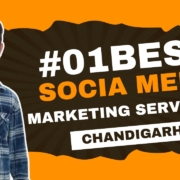 digitalidiots.in
digitalidiots.in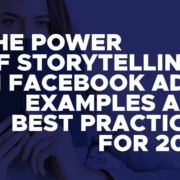
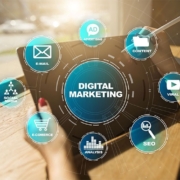
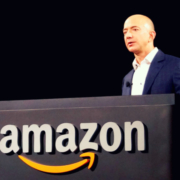

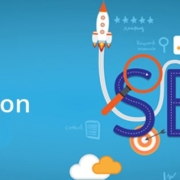



Leave a Reply
Want to join the discussion?Feel free to contribute!